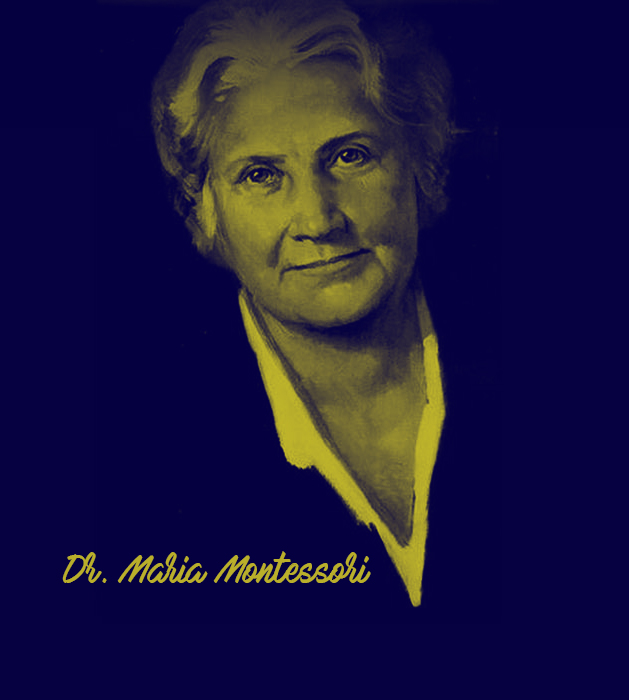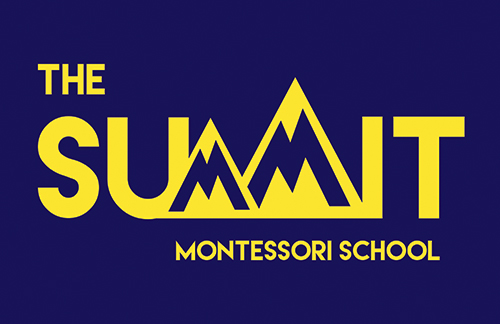
«Whoever touches the life of the child touches the most sensitive point of a whole, which has roots in the most distant past and climbs toward the infinite future.»
Dr. Maria Montessori
About The Summit School
At The Summit School, children and their families share in a stimulating and nurturing educational experience, built upon the core values of respect, independence, and responsibility. Teachers tailor the classroom experience to each child’s developmental needs, allowing the child to pace herself and simultaneously discover the joy of learning as its own reward. Guided by the vision and wisdom of Dr. Maria Montessori, a pioneer in early child development, and supported by a committed community, the TSS has developed a rich history of nurturing creative, eager learners.
School Beliefs
The TSS is committed to Montessori philosophy and practice. Maria Montessori believed that children should be nurtured to develop according to their individual needs and timetables for growth. She also believed that if children were then guided as they explored awareness of themselves, their communities, and the natural world, they would develop into peaceful, fully productive adults who could benefit and steward the world with unprecedented success. The following list describes the beliefs that underlie our school’s practice of Dr. Montessori’s observations and methods:

Learning takes place when children feel safe enough to take risks with new ideas and concepts.

Being conversant in more than one language will be vital to our children’s personal and professional success.

Creativity and self-expression are a valuable part of a strong academic program.

Learning is an indoor and outdoor activity. It is vital for children to have plenty of opportunities to work and play outdoors.

Learning best occurs when the curriculum reflects that the developmental stages of children are fleeting, delicate, irreplaceable, and age-sensitive.

Through service to the community, children learn the value and responsibility of being productive members of society.

The primary role of the teacher is to prepare the environment, observe the children, and guide them according to their developmental needs.

Outdoor and environmental education are important for children to learn how to steward the environment.

Children develop toward their own potential at their own pace, and deserve a learning environment that nurtures and respects their individual strengths and interests.

Academic development is integrated with the rest of a child’s development, including social, emotional, spiritual, and physical development.

With teachers as role models, children achieve their highest potential when they are trusted, allowed to be responsible, and given opportunities to make appropriate choices.

Students, teachers, parents, administrators and trustees must work together to ensure student success, to enhance the quality of education, to preserve the school’s mission, and to build the school’s future.

Technology is a tool that connects people, strengthens communications, and its use is essential to prepare students to meet current and future demands.

The commitment to maintaining Montessori philosophy and continuing school improvements ensures that our students have the greatest opportunity to become confident, self-directed, life-long learners in a rapidly changing world.

Children learn best when academic subject areas are integrated in a way that reflects the broader world.

All children deserve an education that respects them as people and allows them to learn by experience.

When a parent understands and supports Montessori philosophy, the child’s educational experience is enhanced.

The school must maintain open and ongoing communication with parents in order to best meet the academic, social and emotional needs of the students.

Welcoming people of different cultures, religions, ethnic origins, family constellations, sexual orientations, economic status, customs, languages, and heritages creates an atmosphere of awareness, understanding, respect, and peace.

Children learn by doing and from their peers. Hands on experiences and multi-age groupings have a significant impact by making the learning process relevant to their lives.

Challenging academic work is critically important to the growth of all children.

Children who are involved in governing the classroom and finding peaceful resolutions to conflicts from an early age are likely to develop self-discipline.

Children are born with the natural desire to learn.

Learning is a lifelong process.

Sharing the Montessori philosophy can benefit the greater community.

THE HISTORY OF THE
MONTESSORI MOVEMENT
Nearly 100 years ago, an Italian physician inspired the birth of a worldwide educational movement. Dr. Maria Montessori, one of Italy’s first female physicians, became interested in education while caring for mentally challenged children in a psychiatric clinic in Rome. There she combined sensory-rich environments and hands-on experiential techniques in the hopes of reaching children previously labeled “deficient and insane.” The experiment was a resounding success. Within two years, the children were able to pass Italy’s standardized public school tests. More importantly, Montessori’s innovative practices had elicited positive learning behaviors from children previously left behind by society.
In 1907, Montessori continued shaping her learning model by opening “A Children’s House” for pre-school children living in the slums of San Lorenzo. With her scientific background to guide her, she observed how young people learned best when engaged in purposeful activity rather than simply being fed information. She drew upon her clinical understanding of children’s cognitive growth and development in constructing an educational framework that would respect individuality and fulfill the needs of the “whole child.” Dr. Montessori’s pioneering work created a blueprint for nurturing all children –learning disabled to gifted—to become the self-motivated, independent and life-long learners that are the ultimate goal of today’s educational reform movement.
As more and more schools incorporated core elements of her model—multi-age classrooms, early childhood education— Montessori became widely recognized as being ahead of her time. Remarkably, her visionary ideas remain viable concepts that have profoundly influenced the entire educational landscape.
© 2022 Derechos Reservados - The Summit School - Diseño por: CNET Technology Systems
